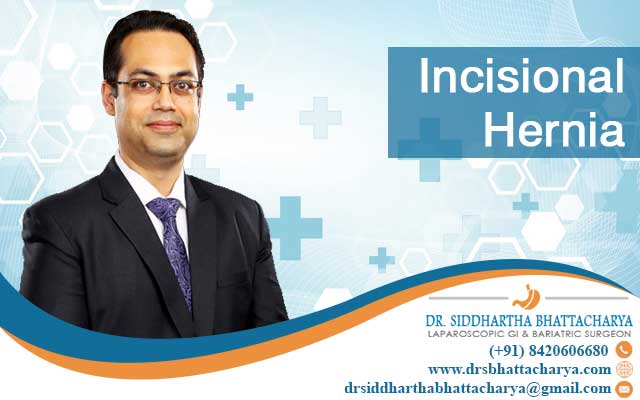When the abdominal tissues protrude through the muscle of the abdomen because of a weakness in the muscle, it leads to an incisional hernia. The reason for the weakness is an incision made during abdominal surgery in the past. The appearance of the hernia is like a big bulge under the skin and it can be tender and painful to the touch. You can get rid of this problem by undergoing hernia surgery in Kolkata.
Causes and risk factors
A surgeon makes an incision in the abdominal muscles for a surgery. After the surgery, if that area doesn’t heal for any reason, a gap opens up sometimes as the muscles tighten and release. When the tissues beneath come to know about this gap, they try to come out through the gap. This is when incisional hernia develops.
Multiple abdominal surgeries mean multiple incisions and hernia can form in every incision. The hernia is more likely to happen when the incision is still healing as it is weakest at that time. If a person participates in such activities that increase pressure in the abdomen after surgeries, there is a high risk of an incisional hernia. Becoming pregnant after abdominal surgery also increases the risk. The following are some more risk factors for incisional hernia:
- Existing health problems
- Infection of wound
- Smoking
- Obesity
- Some medicines
Symptoms
A bulge near the area of incision is the most noticeable symptom of an incisional hernia. The other symptoms include:
- Throbbing or burning sensation near the hernia
- Fever
- Nausea and vomiting
- Discomfort and pain in the abdomen, especially around the hernia
- Rapid heartbeat
- Diarrhoea
- Constipation
- Narrow, thin stool
Types
There are two types of incisional hernia.
- Reducible hernia: It is possible to push back these hernias. When you lie down, these may also shrink.
- Irreducible hernia: When part of your intestine pushes into the hernia, these happen. It becomes hard to push the hernias back in.
There can be bowel obstruction due to irreducible hernias and it can ultimately lead to a strangulated hernia. You need immediate treatment by the best hernia surgeon in Kolkata for this.
Treatment
Small or reducible hernias
You can delay surgery if you have a small or reducible hernia. If it goes away on its own, you do not need surgery. However, if it does not resolve on its own, you have to go for surgery.
Large or irreducible hernias
Surgery is necessary if your hernia becomes irreducible or continues to grow. There are two approaches to the surgery, open and laparoscopic.
Open repair
At the area of the hernia, the surgeon makes an incision during an open hernia repair. He/she pushes back the protruding tissue back into the abdomen and closes the opening. The use of mesh patches helps the surgeon to reinforce the area where the hernia developed.
Laparoscopic repair
There will be multiple small cuts (incisions) instead of a large one in laparoscopic hernia repair. A laparoscopic surgeon in Kolkata inflates your abdomen with gas to have a clear view of the inner organs. He/she then inserts a laparoscope with a light and camera and some special surgical instruments through the incisions. After pushing the hernia back into place, the surgeon closes the opening and strengthens the area using a mesh. The surgeon gets guidance from the images of the surgical site sent by the laparoscope to a monitor.

